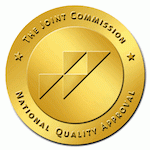Why Choose Us for Stroke Care
If you think you or a loved one is having a stroke, call 911 immediately. With stroke, every minute counts.
You can trust Tower Health hospitals for emergency stroke care. Our three certified stroke centers serve Southeastern Pennsylvania with rapid response treatment to limit the effects of a stroke. Our advanced technology allows us to precisely diagnose the location and type of stroke, and provide clot-busting medications or mechanical interventions to safely and quickly remove the clot from the brain.
Stroke Symptoms/Warning Signs
A stroke is a medical emergency. Use BE FAST to recognize the warning signs of a stroke:
Balance – Sudden loss of balance.
Eyes – Vision loss in one or both eyes.
Face – Weakness or dropping on one side.
Arms – Weakness in one arm.
Speech – Slurred speech or sudden confusion.
Time – Call 9-1-1 now!
How is a Stroke Diagnosed?
Timing is very important. To find out if you had a stroke and what treatment is best, you may have several tests.
- CAT Scan. One of the first tests that will be performed. It gives the doctor details about the location, cause, and extent of the brain injury.
- MRI. A more-detailed image than a CAT scan. It may be needed to show deep or small brain injuries.
- Angiography. Dye is injected into the blood vessels of the brain.
- Carotid Ultrasound. Helps to measure the amount of blockage in the carotid arteries that take blood to the brain.
- Cardiac Ultrasound. Measures the size of your heart chambers, thickness of the heart muscle, blood flow speed, and direction to determine if any heart valves are narrowing or leaking.
Find a radiology/imaging location.
Stroke Treatment
Rapid-response treatment offers the greatest chance for recovery and reduces the risk of permanent brain damage. Immediate therapy is aimed at removing blood clots that block blood flow to portions of the brain. Treatment involves dissolving the clot with "clot-busting" medication, or removing the clot with a procedure called a mechanical thrombectomy.
If you experience stroke symptoms, specialists will examine you immediately at one of our emergency departments. When needed, the stroke centers at all three Tower Health hospitals can administer clot-busting medication within minutes. Patients with certain "bleeding" strokes, or who need clot retrieval, are immediately transferred to the comprehensive stroke center at Reading Hospital.
After immediate treatment, patients are admitted to a dedicated stroke unit where they are closely monitored and cared for by specialized medical and nursing staff. Our expert team will work to uncover the causes of the stroke and, if an underlying condition is diagnosed, develop a treatment plan.
Stroke Rehabilitation
Rehabilitation starts soon after a stroke, when a team of physical, occupational, and speech therapists see the patient while they are in the hospital. After the hospital stay, our certified stroke rehab programs provide comprehensive inpatient and outpatient therapy. Our goal is to maximize recovery from a stroke with a personalized treatment plan so our patients can regain independence as quickly as possible.

Stroke Awards and Accreditations
Stroke Prevention
If you or a loved one are at risk for a stroke or have a disease that affects blood flow to the brain, it is important to see a multidisciplinary team to diagnose and manage the condition. As an integrated healthcare system, we include a wide network of providers including primary care physicians, vascular neurologists, neurosurgeons, cardiologists, and vascular surgeons. Our experts offer the most advanced diagnostic testing and treatment options.
Treatment to lower the risk of stroke may include:
- Lifestyle changes such as good nutrition, healthy weight management, and exercise
- Medication management to alleviate symptoms, treat underlying conditions, or assist in recovery
- Minimally invasive procedures for the blood vessels, heart, or brain to treat underlying cardiovascular disease
Expertise in a Full Range of Cerebrovascular Conditions
Any condition that affects blood vessels and circulation in the brain can be life-threatening and life-altering. Our multidisciplinary team of vascular neurologists, neurosurgeons, vascular surgeons, neuroradiologists, and neurointerventionalists provide you with expert diagnosis and management of:
- Aneurysm - bulging of the artery wall
- Arteriovenous malformations (AVM) or abnormal collection of blood vessels in the brain
- Brain hemorrhage - bleed in the brain
- Carotid artery disease - plaque buildup in arteries
- Carotid stenosis - narrowing of carotid artery
- Cavernous malformations - blood vessels that form abnormally might leak blood and can cause a stroke
- Cerebral venous sinus thrombosis (CVST), a type of stroke when a clot forms in the brains venous sinuses
- Dural venous fistulas - abnormal connection between artery and vein
- Intracranial stenosis - plaque buildup in the brain
- Stroke, including hemorrhagic stroke and ischemic stroke
